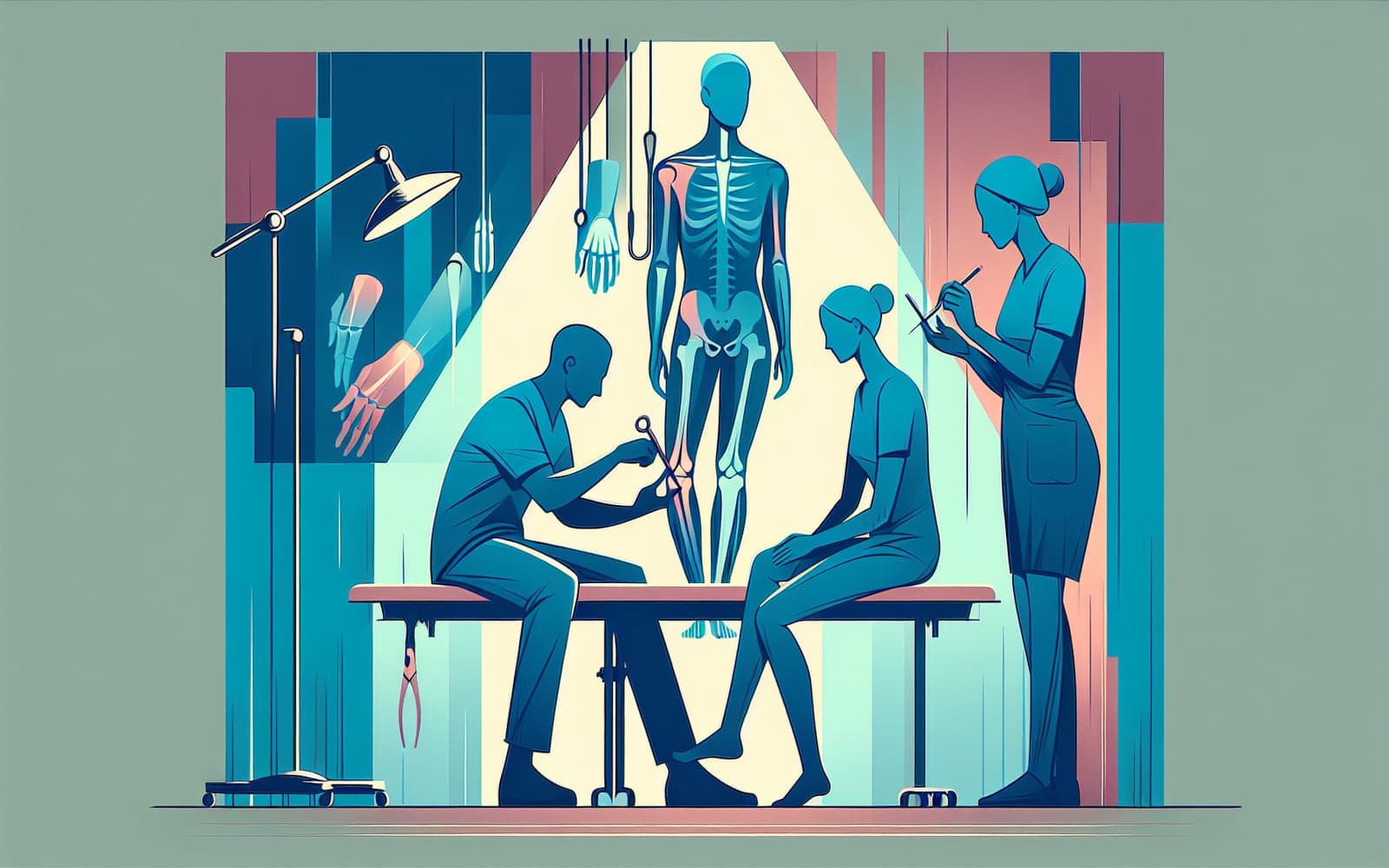Contents
-
Splinting as a Primary Treatment
-
Role of Pain Management
-
Rehabilitation and Recovery
Effective Therapies for Distal Phalanx Fractures
Effective Therapies for Distal Phalanx Fractures
What's This About?
Discover the most effective therapies for treating distal phalanx fractures and how they aid in recovery.
Contents
-
Splinting as a Primary Treatment
-
Role of Pain Management
-
Rehabilitation and Recovery
Splinting as a Primary Treatment
Splinting is the first line of treatment for nondisplaced distal phalanx fractures. It stabilizes the finger, allowing the bone to heal correctly over three to four weeks. Proper splinting can minimize pain and prevent further injury during the healing process.
Role of Pain Management
Pain management is crucial in the early stages of treatment. Use of ice and elevation helps reduce swelling and discomfort initially. Over-the-counter pain relievers can also be effective in managing pain during recovery.
Rehabilitation and Recovery
As healing progresses, rehabilitation exercises become important to restore full function. Gentle movement exercises help regain strength and flexibility, preventing stiffness and ensuring proper recovery. Consulting with a hand therapist may be beneficial for tailored recovery plans.
FAQs
What is the main treatment for these fractures?
Splinting is the primary treatment.
How is pain managed initially?
With ice, elevation, and pain relievers.
Why is rehabilitation important?
To restore strength and flexibility.
When is a hand therapist needed?
For tailored recovery plans.
Key Takeaways
Appropriate therapy ensures effective healing and return to normal finger function.
Additional References
-
Bendre AA, Hartigan BJ, Kalainov DM. Mallet finger. J Am Acad Orthop Surg 2005; 13:336.
-
Oetgen ME, Dodds SD. Non-operative treatment of common finger injuries. Curr Rev Musculoskelet Med 2008; 1:97.
This article has been reviewed for accuracy by one of the licensed medical doctors working for Doctronic.












